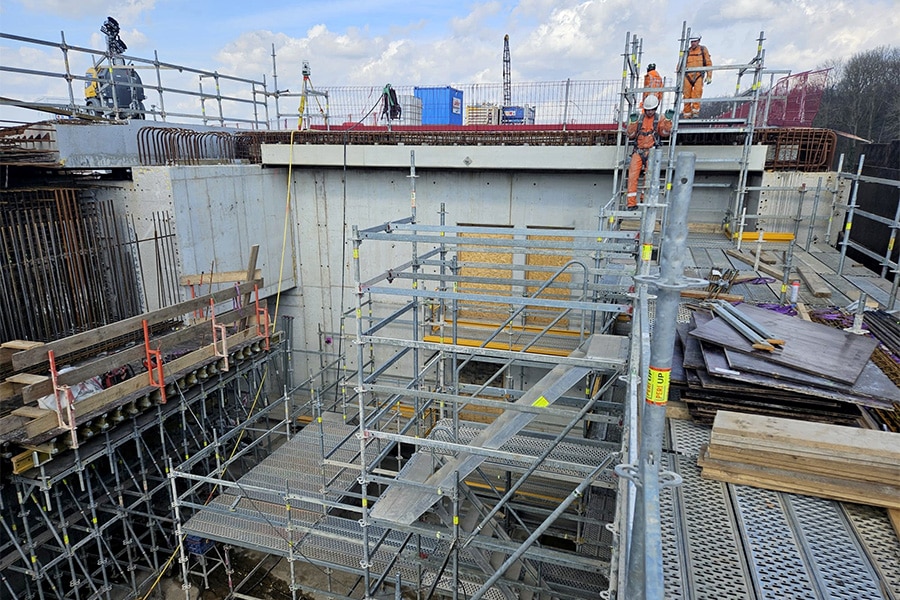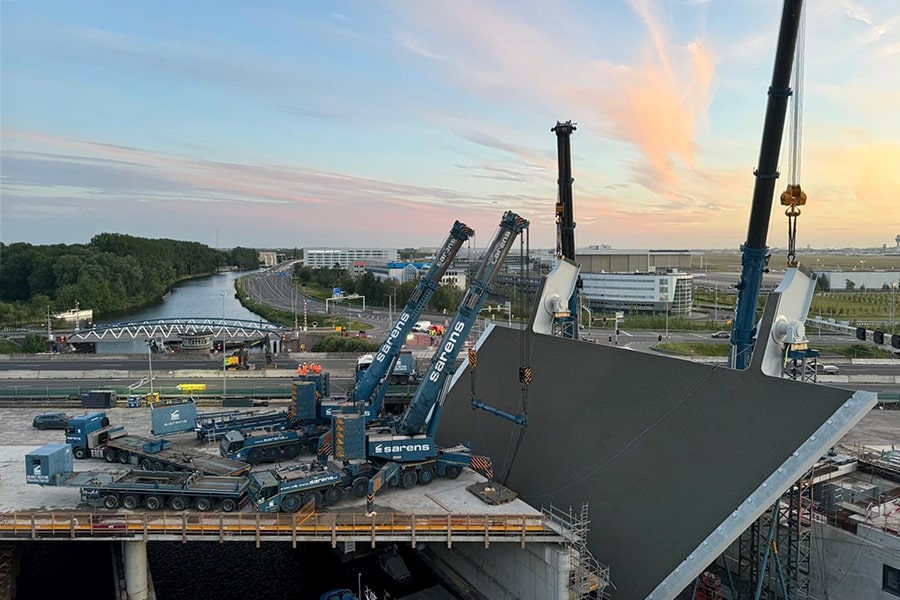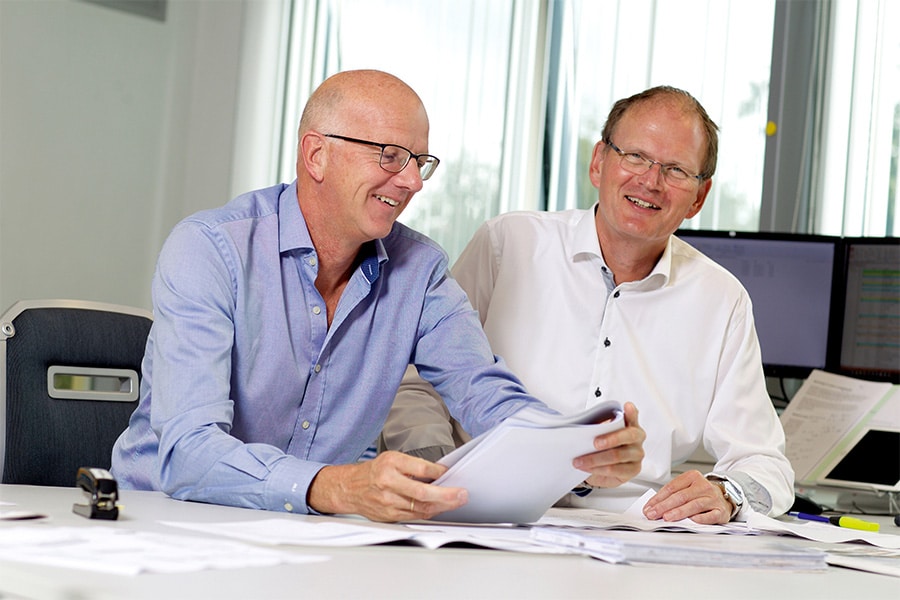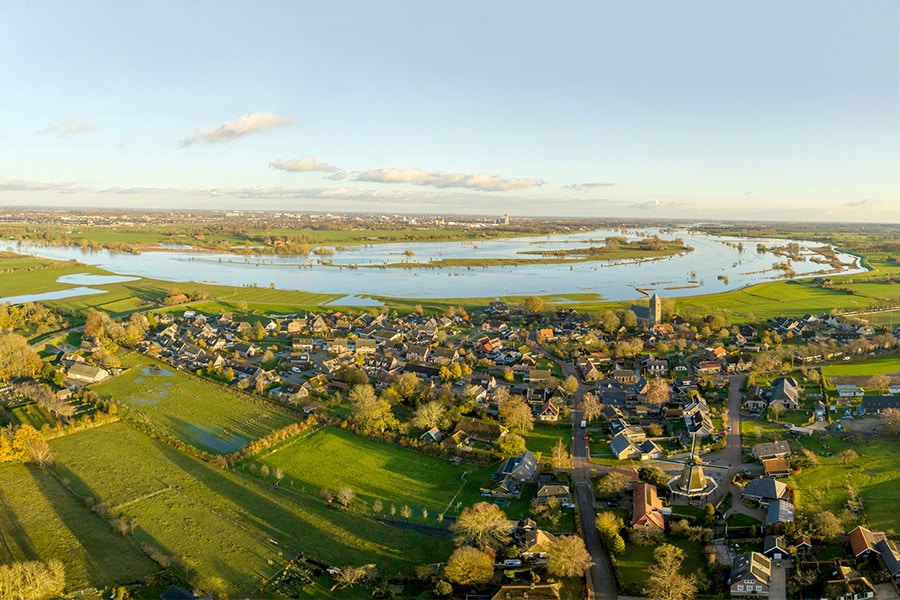
Uniform digital environment for Valley & Veluwe Water Board
Due to a merger in 2013, Waterschap Vallei & Veluwe had been working with two SCADA systems for years. Or rather, with sixteen different configurations at sixteen water treatment plants and nearly one hundred sewage pumping stations. The desire was to replace these separate environments with a single new application that would look and feel more like a clear multi disciplinary dashboard than a complicated mission-critical operational system. ICT Group took up the challenge.
Henri van de Kolk, project manager at Waterschap Vallei & Veluwe, remembers the 2019 market consultation well. A video showed what the future SCADA system might look like. The goal of the new application: to deliver tailored information to users, on any device. The integrators present were amazed by the possibilities, but also made critical comments. After all, anything is often technically possible in a small demo, but practice tends to be a lot more unruly. "We found the tender quite exciting. What we were asking for had never been done before and that can scare off bidders, resulting in a failed tender," says Van de Kolk.
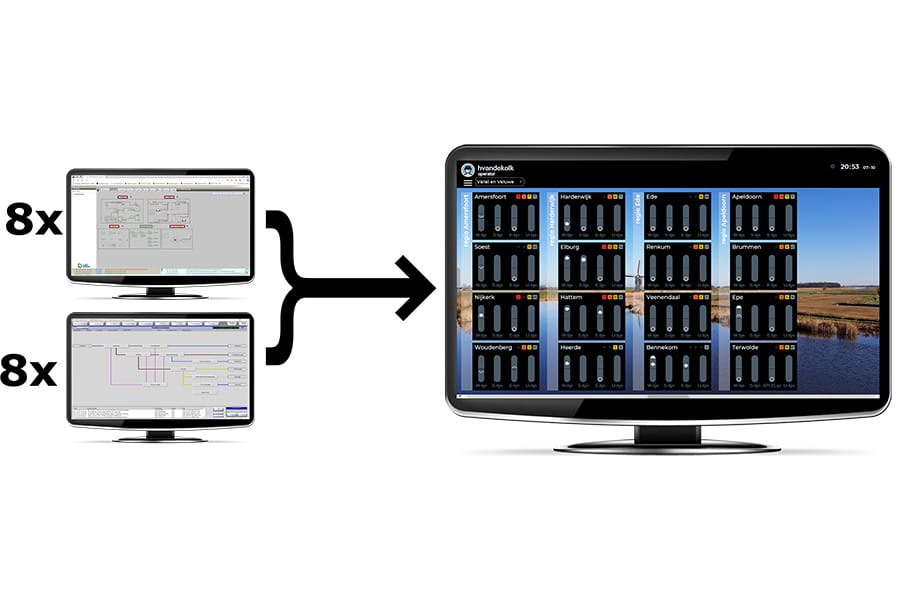
Customized information
What the water board requested was that the Operations Management Interface (OMI) be user-centric. Depending on his role and location, the application should pull the right data from various underlying data sources and display it in a way that the user immediately sees the information he needs.
Users are administrators, mechanics and central control staff. "These all have different information needs," says Van de Kolk. "Mechanics need information from the pumps and valves they (will) be working on, while employees with a control function want to see (different) information from measurements of treatment processes. For each user group you have to create a design for a user interface (UX-design) that suits their needs and wishes. The OMI must also be accessible on any device. On a mobile device you need to see the same information as on the screen of a laptop or desktop."
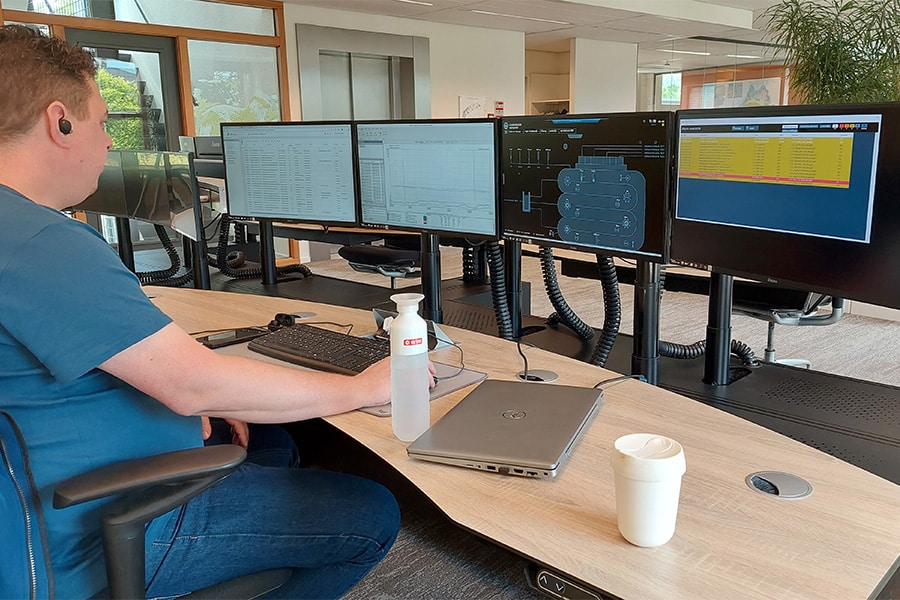
Working well together
The technical challenge was great. ICT Group bid for and won the tender. "ICT Group impressed us with their plan and at the interviews," says Van de Kolk. "We were very enthusiastic about their approach to designing and realizing the OMI, combined with the user experience and flexibility during realization. Moreover, they made us feel throughout the preliminary process that we would be able to work well with them. And in the end, that is perhaps even more important than the technology. Especially in such a large and complex project like this."
Separation of IT and OT
ICT Group started the project with a baseline measurement of the current systems at the sixteen locations and interviews with the users. "There were many opportunities for improvement, but at the same time people were so used to it that they also didn't think about what could be improved," says Michèl Manders, Operations Manager at ICT Group.
Once the initial situation was mapped out, two teams were formed: one team dealt with the purely technical side: networking, hardware and all the software issues related to technology. The other team focused on the user interface (OMI).
Best value approach
In retrospect, Van de Kolk is glad he chose best value as his project approach. "We really said: ICT Group, you are the expert, we will let ourselves be guided by your advice." Which, incidentally, did not mean that every piece of advice was blindly adopted. "We did always check: does this advice also suit us as an organization? For example, do certain technical choices also fit our people and our processes? Because those three axes are inextricably linked. In addition, there must of course be a balance between price and quality. The technically best solution is often also the most expensive solution. Sometimes you just have to make concessions." All these issues regularly led to discussions at the cutting edge. Nevertheless, the relationship always remained good. "I really give ICT Group a big ten when it comes to cooperation. They always have a long-term focus. They are not out to prove themselves right, even though they were sometimes right in hindsight. They just want to achieve the best possible solution, taking into account all the difficult circumstances. That's where we always found each other. Under challenging circumstances, we really did create something innovative that we can be very proud of."

